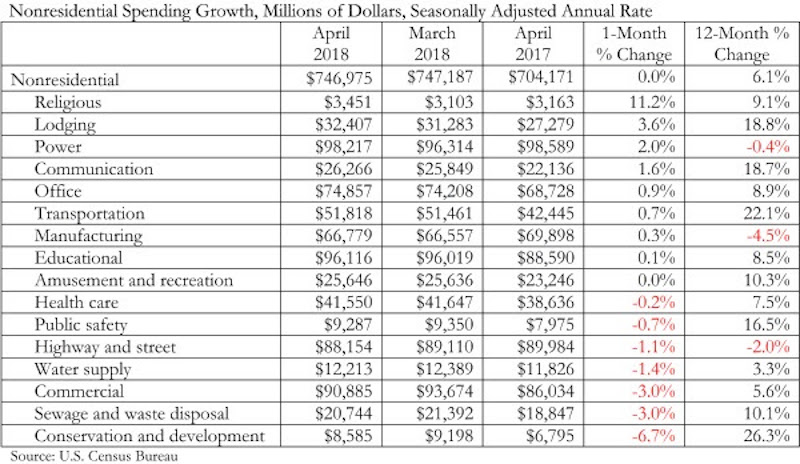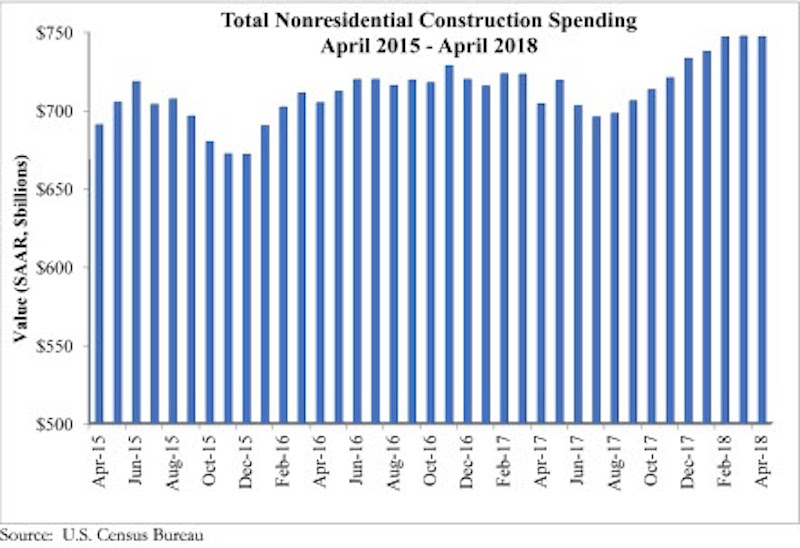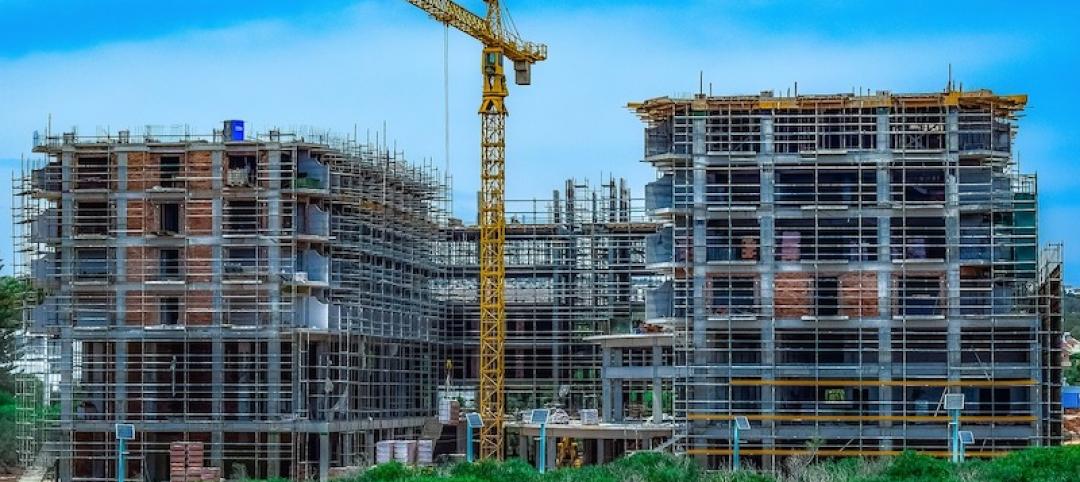Nonresidential construction spending remained unchanged in April on a monthly basis, according to an Associated Builders and Contractors (ABC) analysis of U.S. Census Bureau data released today. However, year-over-year spending was up a sturdy 6.1%.
Private sector spending increased 0.8% on a monthly basis and is up 5.3% from a year ago. Public sector spending fell 1.4% in April, but is up 7.3% year over year.
“Between today’s employment and construction spending reports, it is clear that the economy continues to exhibit strong momentum and abundant confidence,” said ABC Chief Economist Anirban Basu. “It’s important to remember that the construction spending data generally have failed to display as much economic strength as many other indicators. Even the most recent monthly readings on construction spending were unspectacular, but the year-over-year numbers are consistent with ongoing economic and industry progress.
“Perhaps most encouraging is the growing strength of the public categories,” said Basu. “For many years, public construction spending languished even as private categories demonstrated growing vigor. With the dramatic improvement in state and local government finances in many communities in recent years, there is greater capacity to invest in infrastructure. Not coincidentally, construction spending in the transportation category rose 22% during the past year. Spending in the public safety category, which includes spending on police and fire stations, is up by nearly 17%.
“As always, there is a need to pay attention to any clouds forming on the horizon,” said Basu. “Inflationary pressures continue to build, with tariffs on steel and aluminum likely to accelerate construction materials price appreciation during the next several months. Interest rates are expected to head higher, though perhaps only in fits and starts. Wage pressures also continue to build. The implication is that the cost of financing construction projects is on the rise. Should those costs rise too quickly, the momentum presently observable in nonresidential construction spending and employment data could quickly dissipate.”


Related Stories
Market Data | Oct 16, 2020
5 must reads for the AEC industry today: October 16, 2020
Princeton's new museum and Miami's yacht-inspired luxury condos.
Market Data | Oct 15, 2020
6 must reads for the AEC industry today: October 15, 2020
Chicago's Bank of America Tower opens and altering facilities for a post-COVID-19 world.
Market Data | Oct 14, 2020
6 must reads for the AEC industry today: October 14, 2020
Thailand's new Elephant Museum and the Art Gallery of New South Wales receives an expansion.
Market Data | Oct 13, 2020
5 must reads for the AEC industry today: October 13, 2020
Miami Beach Convention Center renovation completes and guidance offered for K-12 schools to support students with asthma.
Market Data | Oct 12, 2020
Majority of contractors fear long-term business implications of COVID-19, according to Construction Executive survey
While many contractors have not yet seen drastic impacts to their business, as construction was in many areas considered an “essential” service, the long-term implications are concerning.
Market Data | Oct 12, 2020
6 must reads for the AEC industry today: October 12, 2020
4 challenges of realizing BIM's value for an owner and Florida office property is designed for a post-Covid world.
Market Data | Oct 8, 2020
6 must reads for the AEC industry today: October 8, 2020
The first rendering of the National Medal of Honor Museum is unveiled and seven urgent changes needed to fix senior living.
Market Data | Oct 7, 2020
6 must reads for the AEC industry today: October 7, 2020
Water-filled windows' effect on energy and construction begins on PGA of America HQ.
Market Data | Oct 6, 2020
Construction sector adds 26,000 workers in September but nonresidential jobs stall
Many commercial firms experience project cancellations.
Market Data | Oct 6, 2020
6 must reads for the AEC industry today: October 6, 2020
Construction rises 1.4% in August while nonresidential construction spending falls slightly.

















